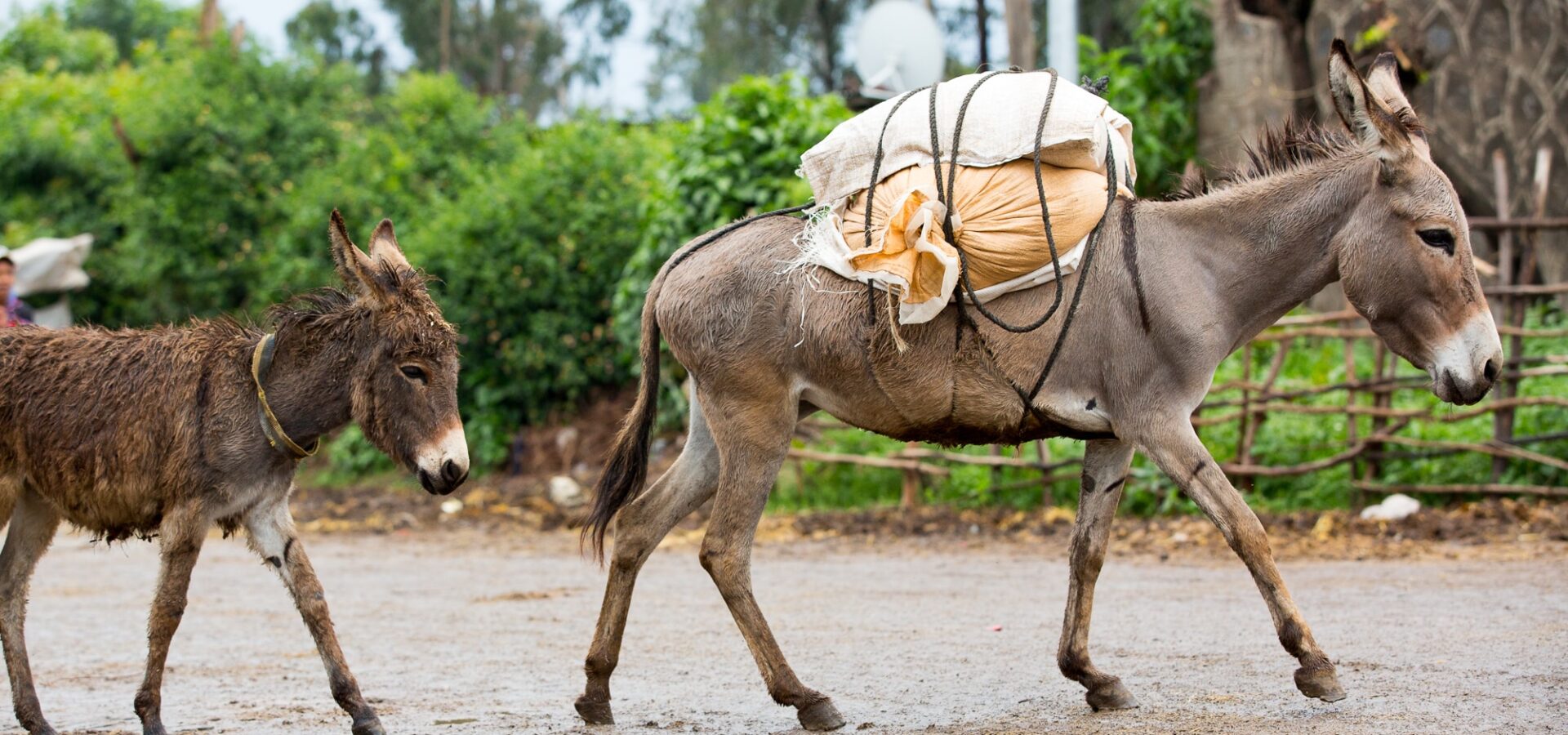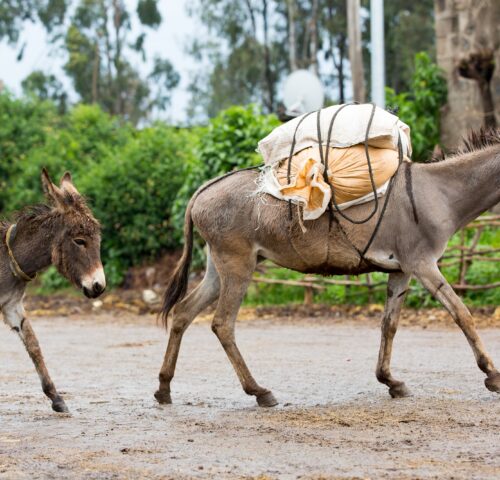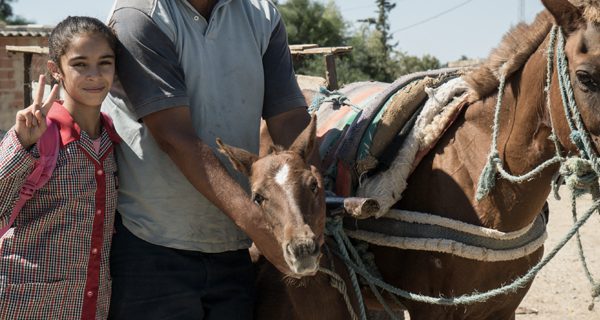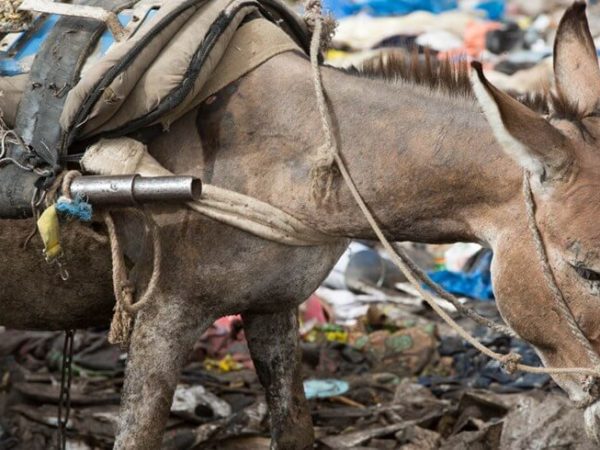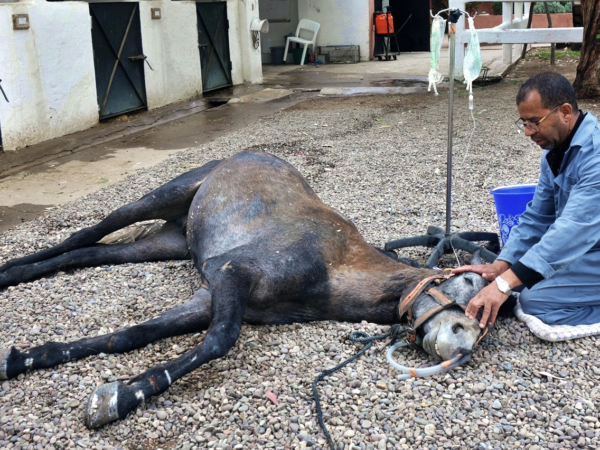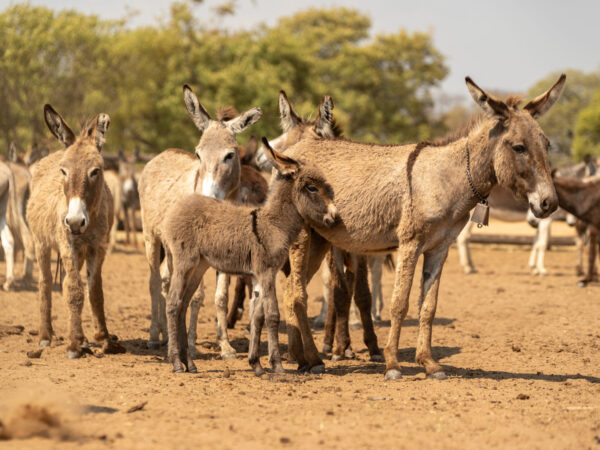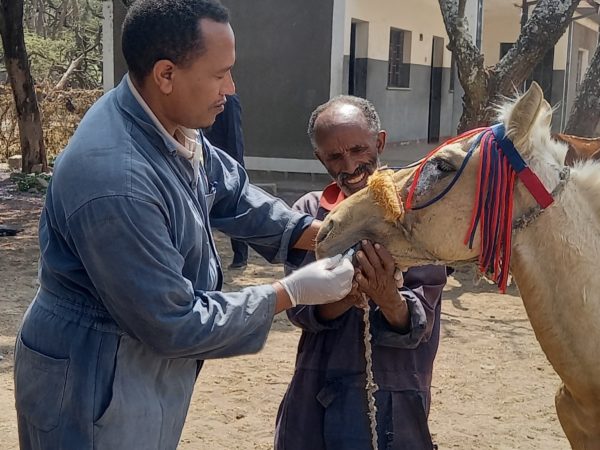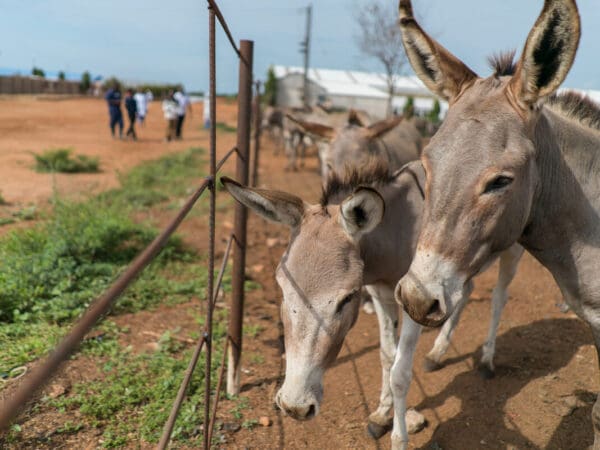Since we started working in Ethiopia, we have been able to make a major difference to the lives of the country’s working animals. With millions of working animals used in agriculture and for transporting food, water and people across rugged, rural terrain, working animals are the backbone of life in Ethiopia
Ethiopia at a glance
- Population: 120.3 million
- Area: 1,104,000 square km
- Location: East Africa
- Capital city: Addis Ababa
- Estimated number of working animals: 13,856,384
- Number of SPANA centres and mobile veterinary clinics: Seven
- Number of working animals treated in 2022: 42,376
- Number of animal owners trained in 2022: 53,108
- Number of veterinary professionals trained in 2022: 1,104
- Number of children receiving humane education in 2022: 10,759
Our work in Ethiopia
In Ethiopia, we treat thousands of animals a year at our centre in Bishoftu. Three mobile clinics also help sick and injured working animals in remote and rural locations. The main problems we encounter are animals with wounds, lameness, respiratory disease, and a fungal infection called epizootic lymphangitis (EZL), which can be fatal. Working with the University of Liverpool, SPANA is leading a long-term study to better understand EZL and, eventually, result in more effective treatments for Ethiopia’s horse population.
We also operate two clinical skills centres for training young vets. The centres are equipped with different skills stations where students can practice essential veterinary skills, such as injection technique, suturing and bandaging, in a safe environment.
As well as training veterinary professionals, we provide training for working animal owners. We hold community training sessions and give one-to-one practical advice to owners while their animals receive treatment. To help improve the quality of life for the animals we treat in Ethiopia, we also distribute humane equipment, including harness pads for owners to put under their animals’ harnesses to prevent wounds.
Meanwhile, our educational activities in Ethiopia reach thousands of children every year, teaching the next generation of working animal owners compassion and respect towards animals. An animal handling facility at our centre in Bishoftu allows children to handle small animals such as rabbits and guinea pigs to gain confidence and a greater understanding of the needs of animals. Our education programme, which takes place in schools and animal clubs across Ethiopia, teaches children about animal welfare in a fun and engaging way.
Working on the ground in Ethiopia means we are able to respond quickly to emergency situations. In 2020, in response to the coronavirus (Covid-19) pandemic, SPANA launched an emergency feeding programme in Ethiopia to provide immediate veterinary care, feed, water and shelter to working animals in need.
In Shashemane, southern Ethiopia, working animals and local communities have been severely affected in recent years by a devastating combination of drought, conflict, flooding and – most recently – the Covid-19 pandemic. Plummeting crop yields, and a lack of water and pasture, have had a major impact on donkeys and the people who depend on them. As part of our emergency work, to assist animals threatened by crisis situations, SPANA has constructed lifesaving donkey protection areas. These include new water troughs and a water line to supply them, feed banks, and shaded areas to shield the donkeys from the intense sun. In 2019, thanks to your support, we also built a 5,000-litre capacity water tank in Shashemane. More than 6,600 animals directly benefit from this project, which is helping to protect them from the effects of drought and other life-threatening events.
Q&A with Teferi Abebe, SPANA Ethiopia Country Director
How long have you worked with SPANA?
I have worked with SPANA for just over five years, since January 2018.
What difference has SPANA made to the welfare of working animals since the charity started working in Ethiopia?
The major achievement has been changing the attitude of communities, government bodies and schoolchildren about how working animals are important to the livelihood of Ethiopians. Also, veterinary colleges weren’t teaching equine medicine, but thanks to SPANA’s influence, equine medicine is now a valued part of courses for vet students. SPANA’s established clinical skills centres at three colleges are pioneering – serving as practical skills centres for equines and other species of animals.
What achievements are you and your team most proud of?
We are proud of our services that have reached the neediest community members who cannot afford veterinary services for their working animals. I’m also proud of SPANA’s intervention in times of emergency. This work improves the resilience of communities and their working animals, who face recurrent drought and the impact of climate change.
What do you like most about your job?
My life is full of excitement! As Country Director, I’m privileged to lead the expansion of our programme and to be able to support working animals and their communities with emergency relief. It’s only made possible thanks to our amazing supporters – thank you!

